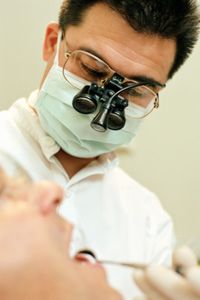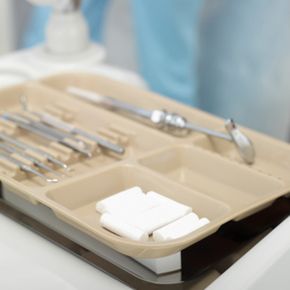Funding a college education is no small task. It's even more of a challenge to pay for education beyond a basic undergraduate degree. Part of the problem is that many of the grants and scholarships available to college students aren't applicable to post-graduate work. That includes many students who enroll in dental school. On top of the normal costs of tuition, books, and room and board, dental school students often have to purchase their own medical instruments. A dental school education gets expensive quickly.
There are two major branches of dental school: dental hygiene school and schools of dentistry. Students interested in becoming dental hygienists must attend and graduate from an accredited dental hygiene school. Dental hygienists also have to obtain a license in whichever state they will practice -- this usually involves passing written and clinical exams. Some colleges offer undergraduate courses in dental hygiene. Independent dental hygiene schools might require students to complete at least a year's worth of undergraduate study before applying.
Advertisement
Dentistry students are a different matter. Students wishing to become dental surgeons or specialists usually need to complete an undergraduate degree in a science-oriented major first. Then the students must apply to a school of dentistry to continue their education.
Because dental hygienists can complete their coursework as undergraduates, it's easier for them to secure grants and scholarships for their entire education. Students who enroll in post-graduate studies in a school of dentistry must compete for a smaller pool of funding.
On the next page, we'll look at the types of gift aid available to students.
Advertisement


